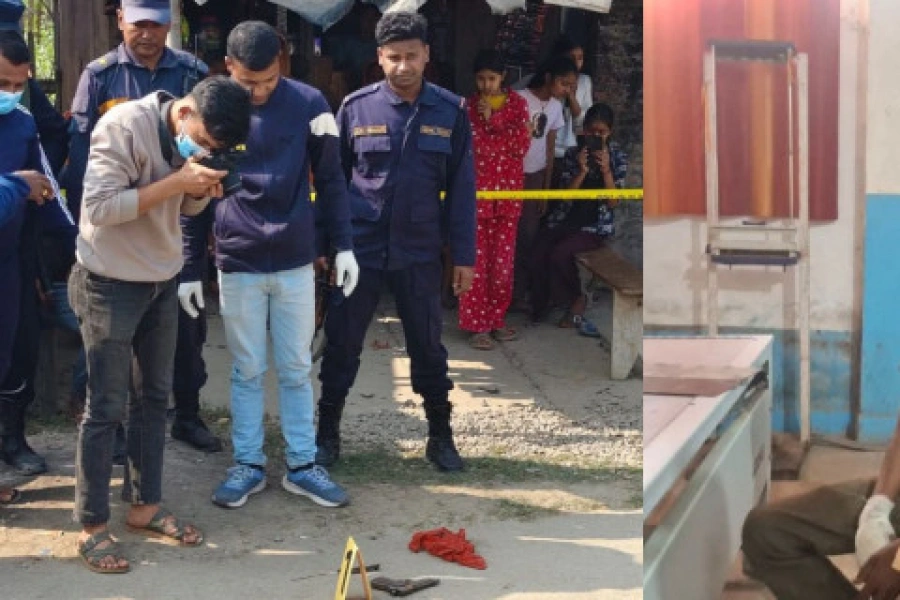KATHMANDU: Firebrand leader KP Sharma Oli is back at the helm of affairs in Singha Durbar, two years after he was first elected to the post of the Prime Minister of Nepal in October 2015.
To say the least, he more than deserves the post after successfully leading his party, as part of the broader left alliance with CPN-MC and other left parties, to secure a thumping win in the provincial and federal elections held in November 26 and December 7 last year. The alliance enjoys a comfortable majority in the House of Representatives, while it has already formed government in six of the seven provinces.
The last time he was in Singha Durbar for almost a year and had left his mark, notably due to his defiance against the economic blockade by neighboring India and his efforts to speed up economic and trade relations with another close neighbor China. While leaders hitherto had bowed down to the excesses of India so far, Oli's decision to stand his ground not only won him accolades then, but is also believed to have contributed to the win for his party in the recent elections. And hence, there are high expectations from him, now that we know he will be for a longer time and that things are not adverse as it was back then.
Considering his successful first stint, the people at large will be looking for more from the veteran leader as he leads Nepal toward much-needed socio-economic development after a very long political transition. With a comfortable majority at hand and a full term of five years in the offing, he has all its takes to translate his vision of a strong and developed Nepal into action.
However, the picture is not looking as rosy as it was expected to be for Oli. Right from his inauguration, Prime Minister Oli has already faced obstacles, with the CPN-MC refusing to send its representatives to the government for lack of significant progress in the unification between the two parties. Earlier, plans were afoot to complete the unification process before the government is formed. However, it could not materialize reportedly due to conflicting aspirations of the middle-level leaders of both the parties.
FWEAN organizes one-day conclave in Nuwakot to understand chall...

It may be noted that the left alliance won the elections with a promise of a stable government and speedy development, guided by a single party with a handsome majority in parliament. And the voters responded accordingly. But the two parties and their leaders are finding it difficult to translate that popular mandate into action. Of course the alliance combination has worked out well so far in the 6 different provinces, where the post of chief minister, the speaker and deputy speaker have been shared with ease.
Hence, the first challenge for Oli will be to manage his own house i.e. realize the unification. And this will require an efficient management of the representation of the two former parties into the new party as well as in the new government.
Nepali Congress continues to be plagued by the 'sharing' that has been taking place within the party based on different factions led by different leaders. This was also one of the reasons that led to the party's poor show in the last elections, as candidates were chosen not based on merit but based on sharing among the various factions within the party. The party has yet to be one in true spirit, since the split and re-unification of the erstwhile Nepali Congress and Nepali Congress-Democratic parties.
The new party to be made up of CPN-UML and CPN-MC risks of following the footsteps of Nepali Congress if not handled properly. And leader Oli needs to work it out with comrade Prachanda to make sure that there is no longer 60:40 or 70:30 division after a new party is formed.
The next challenge for leader Oli will be to maintain a balanced relations with two of Nepal's immediate neighbors—India and China. In his first stint, Oli had a natural inclination toward China as the situation then demanded the same. He is also credited to have forged the significant trade and transit treaty with China, and moving ahead the process of linking Kathmandu and Lumbini via Pokhara to the international rail network through China.
But things are now different. India has already extended a long and eager hand of friendship with Oli, sending the Minister for External Affairs to hold bilateral talks with him even before his inauguration as the head of executive of the country. And China too will be looking forward to the continuation of the same level of partnership that Oli led during his first stint in Singha Durbar.
Taking both the neighbors into confidence and utilizing their support for accelerated development in Nepal would be what Oli will be looking forward to, which will prove very challenging.
In the meantime, he will have to deal with the financial burden that the outgoing government has inflicted with some decision having long-term financial implications on the economy of the country. Increased social security allowance and increase in number of martyrs' families are some decisions that will be difficult to roll back, given the public sentiment attached to it.
The progress in mega projects like the Kathmandu-Tarai fast track, the second International Airport in Simara, Hydropower projects like Arun III, Upper Tamakoshi, Budhigandaki will be a measurement of the success of Oli's second stint as the Prime Minister of the country.
Leader Oli has a mountain of challenges to climb before him but if he is able to make a successful expedition of it, then there is nothing stopping him from becoming the first statesman of federal republic of Nepal.








































